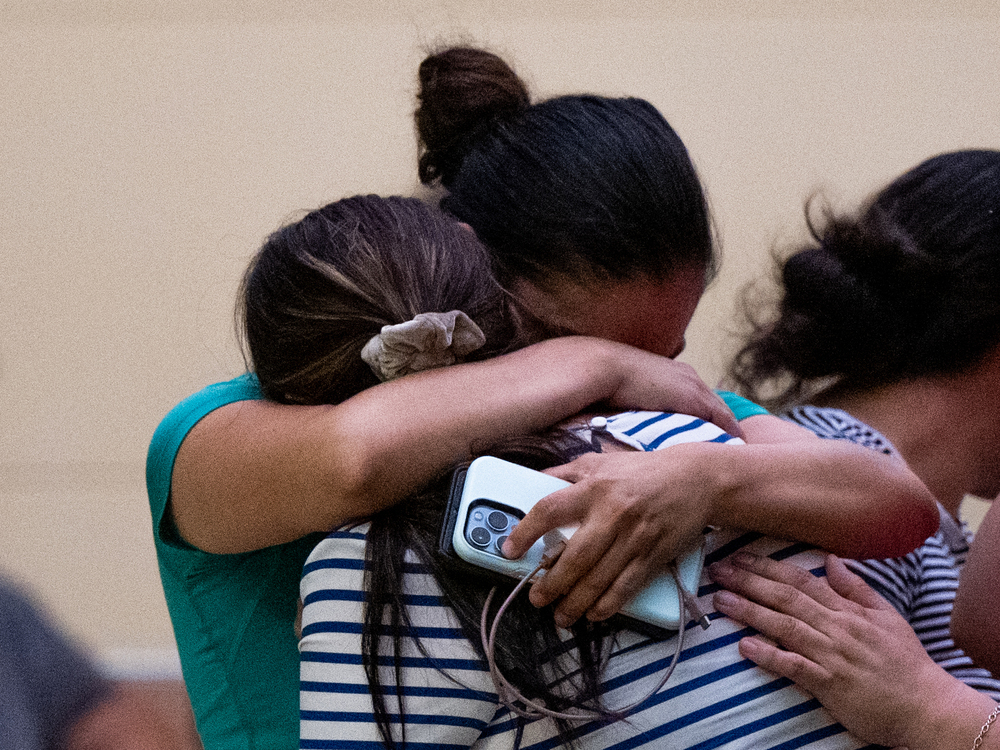
The shooting at Robb Elementary School in Uvalde, Texas, is deeply traumatic for survivors, their families, and the faculty and staff at the school. It also may be emotionally affecting other students across the country.
American children regularly practice active-shooter drills and consider the possibility of a crisis in their own classrooms from a young age, making school shootings like the one in Uvalde very upsetting news for some, says Melissa Brymer, the director of terrorism and disaster programs at the UCLA-Duke National Center for Child Traumatic Stress.
Brymer joined Morning Edition to talk about discussing traumatic events with children, including those who were at Robb Elementary and survived.
She highlights the importance of being truthful with kids and teens, even about difficult topics.
Brymer says that for survivors of the shooting, "it's really important — as we hug them, give them some space — check in with them and ask them: What are they feeling? What did they witness? And provide them support."
She says talking to kids about school shootings can be upsetting, and with kids especially, you may need to have upsetting conversations in small chunks for them to understand.
Brymer notes grief and sadness may cause children and teens to change their routines or have trouble sleeping and loved ones caring for them will need to adjust.
With summer vacation beginning for students in Uvalde, Brymer sees youth programs with adults trained in trauma responses as a critical need. And she notes that resources will need to provided continually for students and adults in Uvalde.
"Then we have to gear up to next year and make sure that there's proper services and programming for our educators as well as our kids," Brymer says.
The National Child Traumatic Stress Network has resources available in both English and in Spanish for helping children cope.

.png?w=600)





